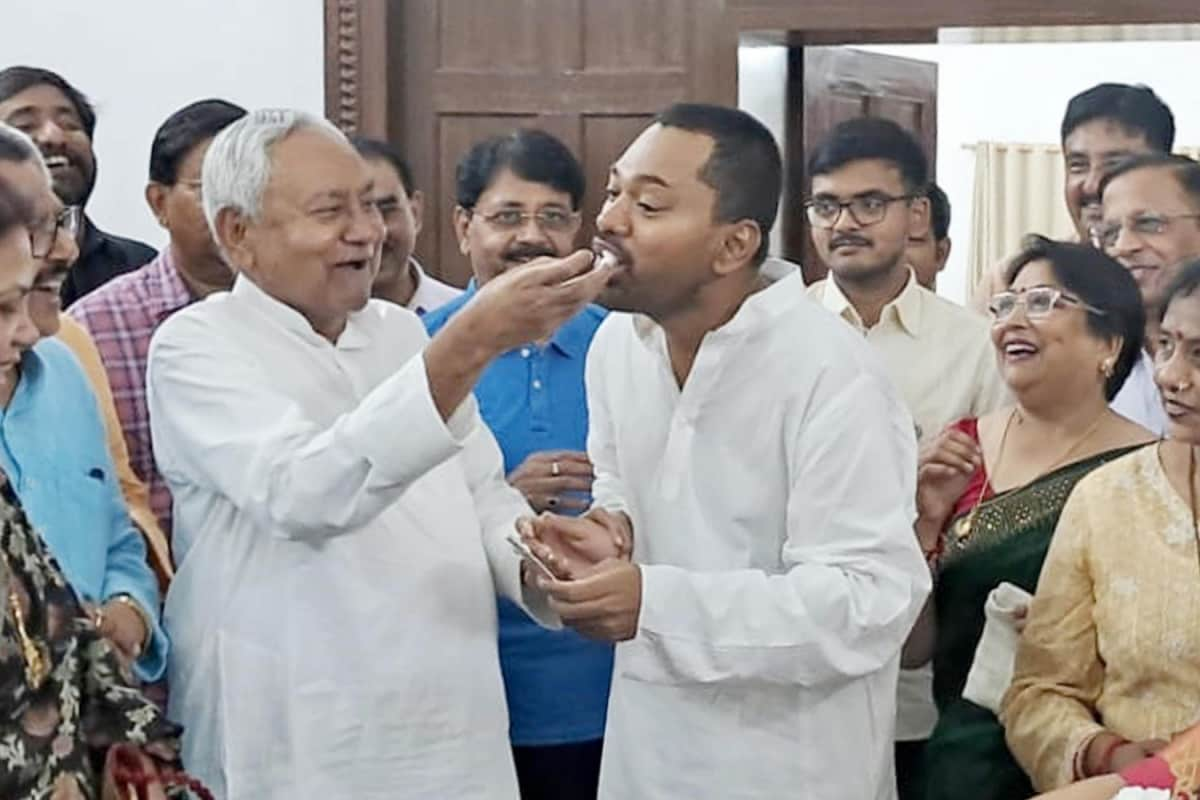

Nitish Kumar, the Chief Minister of Bihar, has long been associated with socialist ideals, tracing back to his early political influences like Ram Manohar Lohia and Jayaprakash Narayan. However, as he navigates the twilight of his political career, a crucial question arises: Who will carry forward his legacy? Despite the prevalence of dynastic politics in India, Kumar has remained steadfast in his refusal to pass the baton to his son, Nishant Kumar, staying true to the ideals he has espoused throughout his career.
Kumar's political journey began in the Janata Dal, where he became an MLA in 1985. A staunch socialist, he co-founded the Samata Party in 1994 with George Fernandes. In 1996, he was elected to the Lok Sabha and served as a Union Minister in Atal Bihari Vajpayee's government, with his party joining the National Democratic Alliance (NDA). In 2003, his party merged into the Janata Dal (United) (JD(U)), and Kumar became its leader.
Throughout his career, Kumar has been a vocal critic of dynastic politics, often contrasting himself with leaders like Lalu Prasad Yadav, who promoted family members in politics. Kumar has maintained that "Bihar was his family". This stance aligns with the example set by his mentor, Karpoori Thakur, who kept his family away from politics.
The question of succession within the JD(U) has become increasingly pertinent as Kumar seeks a record ninth term as Chief Minister. While Kumar remains a significant force in Bihar politics, his age and health have fueled speculation about the future leadership of the party. Upendra Kushwaha, a former close aide, has publicly advised Kumar to relinquish the JD(U)'s leadership, warning of "irreparable loss" if he delays.
Nishant Kumar, Nitish Kumar's son, has largely remained out of the political spotlight. However, there have been recent hints of a potential entry into politics. He has been seen attending party meetings and social gatherings. Despite these appearances, Nitish Kumar has not formally announced Nishant as his successor.
Several factors contribute to Kumar's dilemma. Announcing Nishant as his successor could face opposition from senior leaders within the JD(U), potentially leading to internal strife and возможно even a split within the party. Some analysts believe that Nitish is the JD(U), and without him, the party could disintegrate. Furthermore, Kumar's long-standing opposition to dynastic politics makes it difficult for him to anoint his son as his political heir without appearing hypocritical.
Despite the challenges, there are arguments in favor of Nishant's entry into politics. Some JD(U) leaders believe that Nishant has the potential to carry forward his father's legacy with fresh energy. They point to the examples of other regional parties where family control has acted as a glue, holding various factions together.
Ultimately, the decision rests with Nitish Kumar. While he has been critical of dynasty politics, the need for a clear successor within the JD(U) is becoming increasingly pressing. The upcoming Bihar Assembly elections will be a crucial test for Kumar and his party, as they navigate the complexities of succession and strive to maintain their relevance in the ever-changing political landscape.